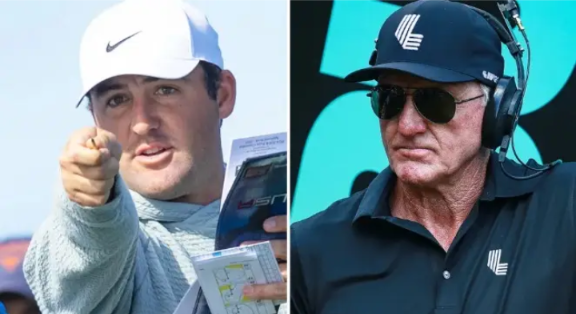In the ongoing debate surrounding the potential merger between the PGA Tour and LIV Golf, world No. 1 Scottie Scheffler has taken a firm stance, asserting that members who defected to the Saudi-backed league should face consequences upon their return. Conversely, Rory McIlroy, once a vocal critic of LIV Golf, has adopted a more lenient approach, advocating for a smoother transition for those wishing to rejoin the PGA Tour.
Scheffler contends that any merger should include a pathway back to the PGA Tour for former LIV Golf members, but not without some form of penalty. He argues that there were varying degrees of defections over the past two years, making it unfair to implement a blanket rule. “You had some guys that left our tour and then sued our tour,” Scheffler pointed out in an interview with the Golf Channel. “That wasn’t really in great taste. Then you had some other guys that just left and they wanted to do something different. Everybody made their own decision, and I have no bad blood towards the guys that left. But… it wouldn’t be a very popular decision if they just came back like nothing ever happened.”
On the other hand, McIlroy’s softened stance reflects a more inclusive approach. He emphasizes the importance of allowing LIV Golfers a seamless return to the PGA Tour without imposing sanctions. While McIlroy acknowledges his previous criticisms of LIV Golf, he now advocates for a more forgiving approach to facilitate a smoother reintegration process.
The contrasting viewpoints between Scheffler and McIlroy underscore the complexities surrounding the merger discussions and the divergent opinions within the golfing community. As negotiations continue, finding a compromise that satisfies both parties remains a crucial challenge in shaping the future landscape of professional golf.
